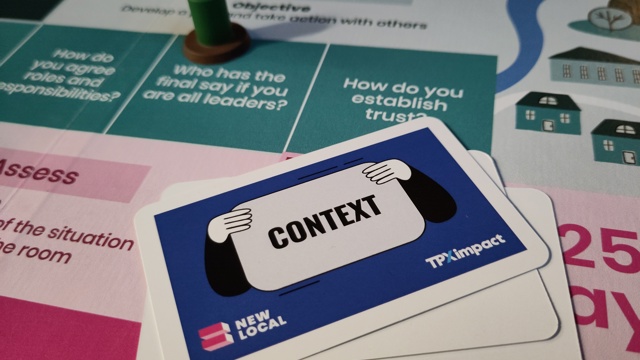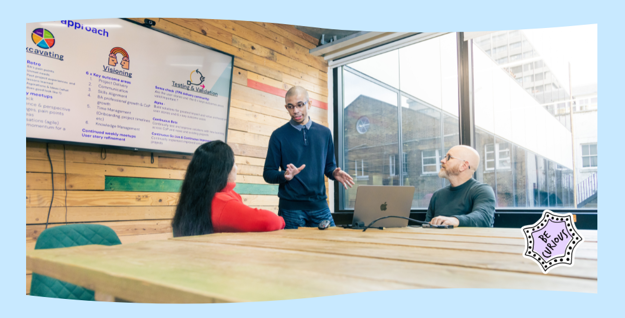2023 was a year of challenges and opportunities for both public and private organisations. From inflation and financial pressures to the rapid development of new technologies, many things have happened which are both causes for optimism and hurdles to overcome.
As we begin 2024, there are many challenges and opportunities ahead for organisations across all sectors and sizes. We discuss what we think the biggest of these are, and what can be done to make the year a success.
Navigating election uncertainty
2024 is a general election year, which will create a sense of uncertainty. Not due to the fact that there will be an election - many of us will have been carrying that in our forecasts and plans for some time now - but because this is an election which could cause a genuinely generational change in politics and power.
Due to high staff turnover, this kind of potential upheaval hasn't been experienced by many of the current civil service. They're used to a change of ministers, but if there is a change of party, that will be a whole different beast and it's not known what will come next. All this can lead to a slow down in progress and projects.
Public bodies can’t let themselves stall during this time. They need to keep moving, doing the next right thing and accepting that some of their work might come to nothing, and that's okay. Paralysis is worse than having to take a step back to take two steps forward.
Tackling the digital skills gap
Away from the election, the changing labour market will also be a challenge for many. Employers want ever more skilled professionals with next-generation skills in AI, digital, data and technology. But often their existing structures, reward and pay can't attract many of the people they need. From a public sector perspective, cost-of-living pressures and an overall narrative that the civil service needs to shrink to pre-covid levels is driving people away from public service at a time when we need them the most.
In 2024 employers, both public and private, must accept that they'll need to pay people more to get the skills they need - but that by doing that they'll get the quality they need and avoid having to 'pay twice' for poor quality, discounted delivery.
James Reeve, Managing Partner - Government
---
Increasing digital skills and vendor diversity
Looking at the challenges our health system faces, there is currently a lot of work being undertaken across the NHS when it comes to Electronic Patient Records (EPRs). While this is an important and necessary step, shortages of experienced staff with the right digital skills to take on these projects, combined with the reliance of the same large suppliers, means that either the quality of work will go down or the cost of people will go up. All this will result in the NHS paying more to create and manage their EPRs.
Trusts and decision makers need to try to use central funding and the implementation process to upskill staff to be able to manage and maintain EPRs effectively. This is not easy when combined with business as usual, and even the big system integrators might struggle to meet all the demand and maintain quality in the teams they deploy. So diversifying the providers they work with to both get better value and foster innovation will be a huge opportunity for Trusts.
Utilising ICB’s
The usual uncertainty over budgets is also likely to be compounded this year by the upcoming election and a potential new government. This will make it difficult for digital teams in the NHS to be strategic and make long term investments and partnerships. Changing governments often means changing initiatives, resulting in projects in mid-flight potentially being stalled or scrapped. All this costs money, and could result in a period of slow progress as things are shuffled.
While this will be a challenge, it also provides the NHS and government with an opportunity to make a greater impact in regions across the country. Many Integrated Care Board’s (ICBs) have not been used to their full potential and it’s probably time to decide if they really are the decision makers. The rationale for local decision making is hard to argue. We should use this as a chance to give them more powers to lead on local projects. This approach will ensure projects are implemented with users’ needs in different regions front and centre, rather than being by central bodies who may not understand local challenges, benefiting everyone.
Iain O’Neil, Managing Partner - Health
---
Building on your digital transformation
In recent years, the challenges of embracing digital to transform ways of working have largely been overcome. The new challenge for organisations in 2024 will be understanding if previous digital transformation projects have delivered the expected return on investment and achieved what they were designed to. Being brave enough to ‘go again’ and state that a technology choice, methodology, partner or way of working hasn’t succeeded, and building the business case to re-invest in new digital transformation activities, will be the biggest hurdle many must overcome.
We would say to businesses, don’t wait! Review your previous projects and start to engage either your existing digital transformation partner ecosystem or the general market to understand more about both the impact and potential opportunity emerging technologies, such as AI, have to offer.
ESG: working with the right partners
One trend we see continuing into 2024 is the importance of ESG to both employees and customers. This is an increasingly vital aspect of attracting the best talent to an organisation, and an important point of differentiation in more commoditised / less price sensitive sectors. When it comes to digital transformation, it’s an important consideration that will reflect a businesses stance on key issues to both their workforce and customer groups.
Firms should talk to their existing digital transformation partner ecosystem about their ESG stance and offering. If this isn’t a strength, it’s time to consider examining the market for partners who provide more assurance in ESG and can offer the opportunity to both do the right thing whilst also having this as an enabler to increase the satisfaction of employees and customers.
Mark Madden, Managing Partner - Commercial
---
Focusing design on the need for deeper institutional change
Changes and ambitious levels of reform to how organisations and systems work are needed this year if we are to realise the potential of new technologies.
At the moment, the emergence of tools like AI are at risk of being used to manage complexities, rather than solving them. I’ve already seen examples where platforms have been implemented unnecessarily to solve a problem, when the right answer would have been to correct underlying issues of poor design or content, costing valuable money and time that could have been spent elsewhere.
Using new technologies effectively requires organisations to make policies and systems simpler and more accessible. To do this, we need to rethink how policy decisions are made and understand how they affect delivery, emphasising the importance of careful design for the best outcomes.
To do this requires focused efforts to build consensus across different teams. This is where organisations should focus the efforts of designers and researchers to think about how they might collaborate more widely, and in more strategic ways away from product and digital teams.
Ben Holliday, Chief Designer
---
Harnessing generative AI
The adoption of Generative AI (GenAI) will continue to be a game-changer for organisations aiming to supercharge efficiency, productivity, process compliance, and customer contact in 2024. The technology brings a range of operational opportunities for both the public and private sector, including:
-
automating cumbersome, repetitive tasks that often bog down teams, such as report drafting and code generation, freeing up time, quickening operational timelines and turbo-boosting productivity
-
optimising the search for information. By serving as a real-time, advanced query system, GenAI can provide fast access to institutional knowledge, cutting down on delays and enhancing decision-making processes
-
speeding up innovation cycles by auto-generating prototypes or simulations, allowing for quicker iteration and decision-making
-
creating more efficient services for people through natural language processing. This means automated yet highly personalised communications can be created, reducing the response time and elevating customer satisfaction
Organisations need to act now to ensure they understand how and where GenAI can benefit them the most, and work with partners who can guide them through this journey.
Preparing for the AI election?
Artificial Intelligence may play a major role in the general election this year. Political campaigns could use the technology to analyse vast amounts of data, understand voter preferences and tailor their messages accordingly, leading to more targeted campaigning strategies and potentially increasing voter engagement. While increased engagement is no bad thing, there's also a risk of manipulating voter opinions through micro-targeted propaganda.
At the same time, we’ve already seen AI-generated deepfakes and misinformation make headlines, and during a general election this could become a highly significant issue. It poses a serious threat to the integrity of the election as these platforms can make it difficult for us to distinguish between real and fake content. Lastly, AI can be used to analyse social media and other online platforms to gauge public opinion and sentiment. While this could provide valuable insights for political parties, it raises concerns about privacy and the ethical use of personal data.
All these risks and their impact has the potential to damage voter perception and trust, as well as distorting our democratic processes. Government needs to get ahead of this, educating itself and the public on AI, its uses and setting out clear guidelines and policies on how this technology should be used in the electoral process.
Jay Bangle, Chief Technology Innovation Officer
---
Whether you’re in the public, third or private sector, 2024 promises to be an eventful and important year. To find out if we can help you and your organisation make the most of it, get in touch.

Spring Budget 2024: NHS tech investment won’t drive efficiency without design
Chancellor Jeremy Hunt pledges £3.4bn for NHS tech transformation. Yet, challenges remain in realising efficiency gains.
Read more
Rethinking cybersecurity in the age of generative AI
Generative AI offers efficiency but poses unique cybersecurity risks. Traditional measures fall short; a new paradigm is needed
Read moreOur recent insights
Transformation is for everyone. We love sharing our thoughts, approaches, learning and research all gained from the work we do.

The role of play in building leadership skills
How play can offer local government leaders a powerful tool to break free from rigid structures.
Read more
A game-changing approach to leadership
Radical Leaders: The Game! uses real-world crisis scenarios to challenge local government leaders, fostering collaboration, agility, & community focus.
Read more
Transforming archiving through AI
How artificial intelligence can turn archives into living resources that shape the future while preserving the past.
Read more





